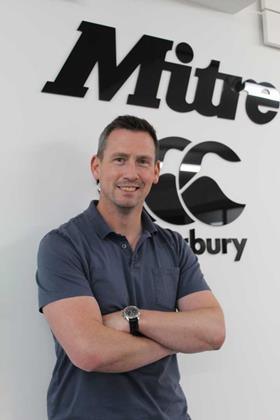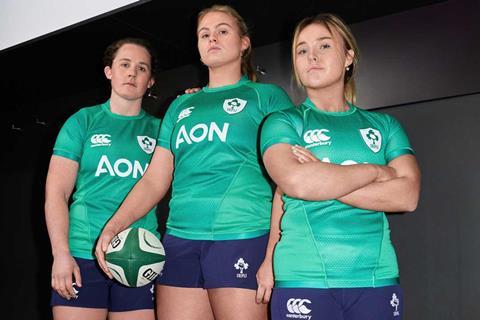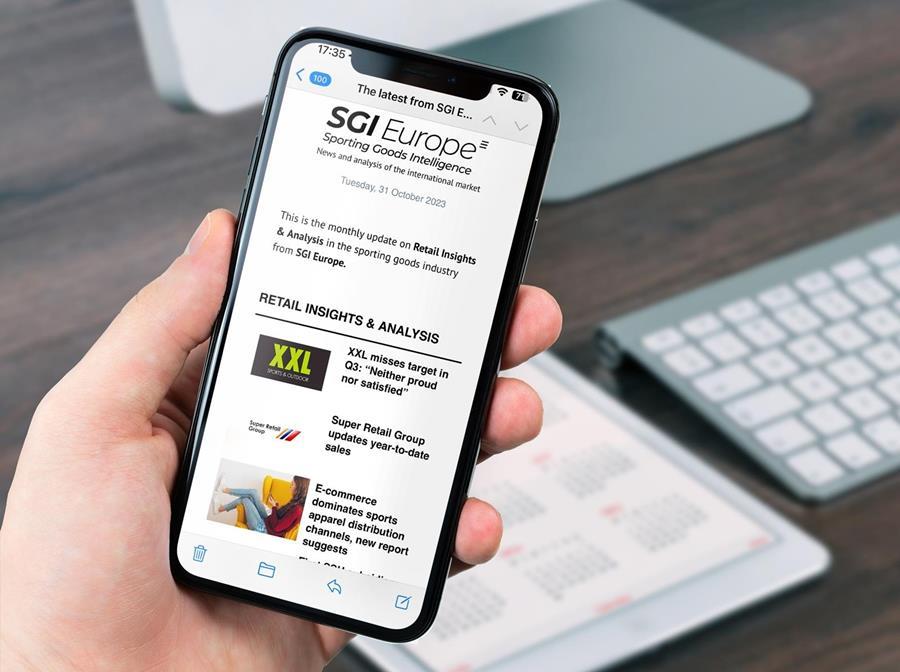Simon Rowe is the Physical Activity Vice Chair at WFSGI and VP of Global Sports Marketing at Pentland Brands. In our interview, Simon reveals how he brings the purpose of inspiring more people to move to life at Pentland Brands. The company has brands like Speedo, Canterbury, Mitre, Ellesse, Endura, Berghaus, and Kickers in its portfolio. Simon is convinced that bold action, partnerships, technology, and a close look at the consumer from the brand’s side are needed to mitigate the physical inactivity crisis.

Can you give us an overview of ongoing initiatives from Pentland Brands that promote health through sport and movement?
We are driven by a passion to make a real difference in people’s lives through sport and movement and Pentland Brands’ 100-1-0 positive business strategy is our commitment to action. This mission is to help 100 million people lead active, healthy, and sustainable lifestyles by 2032. Since its launch in late 2021, we have already helped over 34 million consumers towards our 100 million goal and supported over 300,000 people in their communities.
Take Speedo’s Swim United campaign, for example. With the backing of Olympic champions like Adam Peaty and Ellie Simmonds, we’re tackling the alarming decline in children’s swimming skills head-on. We’re demanding government action to ensure every child learns this life-saving skill which is part of the National Curriculum already but targets are not being met.
Meanwhile, Canterbury is breaking barriers in women’s rugby by addressing period anxieties with their navy shorts initiative, inspired by direct feedback from Ireland International female players we changed the colour of the National Team playing kit to highlight the challenge, and to provide solutions.
We’re also proud to partner with MissKick on Mitre, breaking down the stigma around girls in football by providing coaching qualifications and motivational sessions, opening the door to more participation in football.
How closely are these initiatives related to Pentland’s overall strategy? Are there guidelines from Pentland that apply to every brand?
These initiatives are at the heart of our overall strategy. Every brand within Pentland is guided by our 100-1-0 goals, ensuring our efforts are unified and impactful. Our brands, as leaders in the sporting goods industry, from Speedo to Canterbury to Mitre, are committed to driving change. Speedo’s Swim United fights for government-backed swimming lessons, while Canterbury is setting new standards in women’s rugby by addressing player concerns directly. We operate under a shared mission: to inspire action, improve physical activity levels, and support global health initiatives, as championed by the WFSGI and WHO.
What are your future plans for motivating and supporting a more active lifestyle?
The future demands bold, innovative actions to inspire a more active lifestyle. We’ll continue to expand our community programs like “Give it a Try,” a partnership with the IRFU (Irish Rugby Union) designed to provide girls with an opportunity to play rugby, which has already seen over 11,000 girls giving the game a try since its inception seven years ago.
We will leverage technology, exploring ways in which data can open up participation thanks to our position as the #1 swim brand with Speedo, collaborating with tech companies and governing bodies. It is clear that digital platforms and wearable tech will play a crucial role in keeping people motivated and engaged.
We will also continue to form powerful partnerships to make physical activity accessible to all, such as with Mitre and MissKick, providing coaching qualifications and motivational sessions. It’s imperative if we are to reverse the alarming trends in physical inactivity and achieve our 100-1-0 goals that we continue to develop.

As a marketing expert, how important are influencers in conveying messages about physical activity?
Influencers and partnerships, in general, are vital in our mission to promote physical activity. They bring authenticity and reach that can inspire real change. By collaborating with partners who embody our values, like Adam Peaty and Ellie Simmonds, we make active lifestyles relatable and achievable. Their stories and advocacy amplify our message, making it resonate more deeply with diverse audiences. As we work to reverse the physical inactivity crisis and support our goal of helping 100 million people lead active, sustainable lives, we will bring more of our global partnerships, athletes and influencers into our activity in authentic ways, that hold true to their purpose also, it’s why they want to partner with us.
Is there a campaign that you particularly like in this area?
Speedo’s Swim United campaign stands out as a game-changer. It’s not just a campaign; it’s a call to action. We’re facing a crisis where one in three children leave primary school unable to swim. This initiative, backed by iconic swimmers, demands urgent government intervention to ensure all children have access to swimming lessons. Why I like this campaign so much is that it’s about more than sport; it’s about saving lives. We can also see that there is support across the nation, with nearly 100,000 people signing our petition to take this to the government to ask them to do what is already in the national curriculum guidelines but thanks to cost of living crises and growing inactivity is not being achieved. Supported by national and regional governing bodies, it was important that this became broader than a piece of brand activity, and more a systematic change in the way we approach physical activity.
What are your thoughts on the WHO figures and the decline in physical activity, especially from a brand’s perspective?
The WHO figures are a stark reminder of the urgent need for action. The decline in physical activity is a crisis with profound health and economic consequences, which every person will be impacted by. As leading sportswear brands, we have a responsibility to drive change and our commitment to initiatives like Speedo’s Swim United is designed to tackle this crisis head-on. We must raise awareness, inspire action, and create sustainable solutions to improve global physical activity levels. This is not just about pure business; it’s about safeguarding the future health and wellbeing of our communities, which is why it’s so important that all sports brands come together under the banner of the WFSGI to support this change.
Could you provide a future outlook on new initiatives and upcoming ideas?
Looking ahead, we’re committed to pioneering new initiatives that inspire and enable active lifestyles. We’ll leverage technology, and digital platforms and wearable tech will play a crucial role in keeping people motivated and engaged. We see fewer children being active but higher utilisation of technology, so we will need to engage them in ways that resonate with their needs. It is about adapting to the environment to ensure we are agile to what our communities need to inspire them to want to get active.
Do you have any advice for other companies/brands when it comes to initiatives that support physical and mental health?
My advice is simple: act with urgency and authenticity. Listen to your audience, understand their needs, and create initiatives that make a real impact. Collaborate with local organisations, leverage technology, and ensure your efforts are inclusive and sustainable. At Pentland, we’re committed to leading by example with initiatives like Speedo’s Swim United, Canterbury’s support for women and girls in rugby, and Mitre’s partnership with MissKick are just a few examples. I compel the whole industry to join the WFSGI Physical Activity committee to be part of the change as together, we can drive meaningful change and create a healthier, more active worl

Impact of Sports 2024
The global physical inactivity crisis is real. Our duty as an industry is to inspire a healthy and active lifestyle. That's why we're dedicating a new content series to the Impact of Sports.
>> Find out more.
























